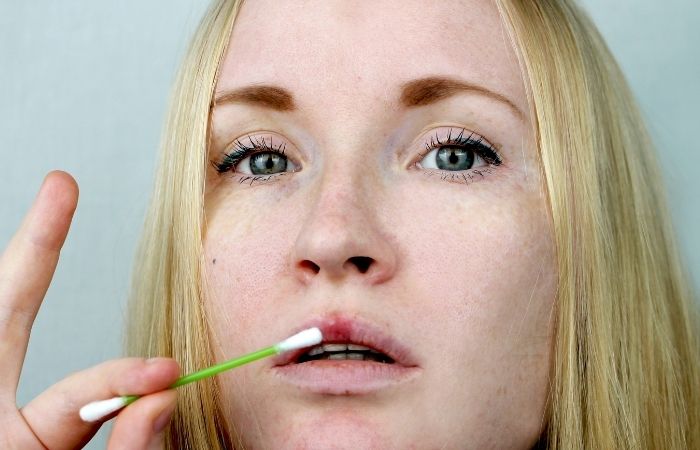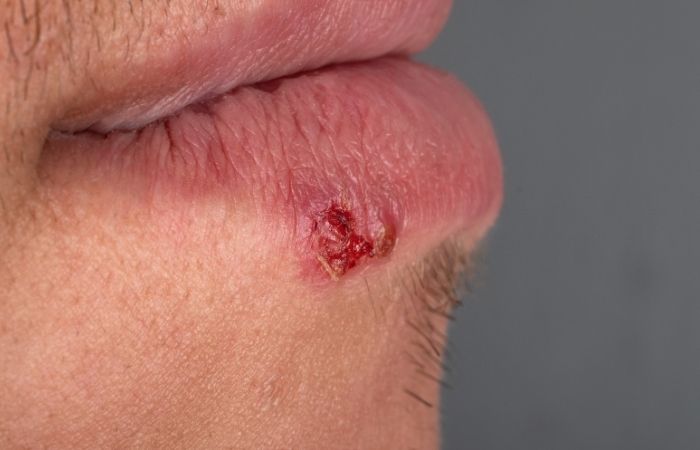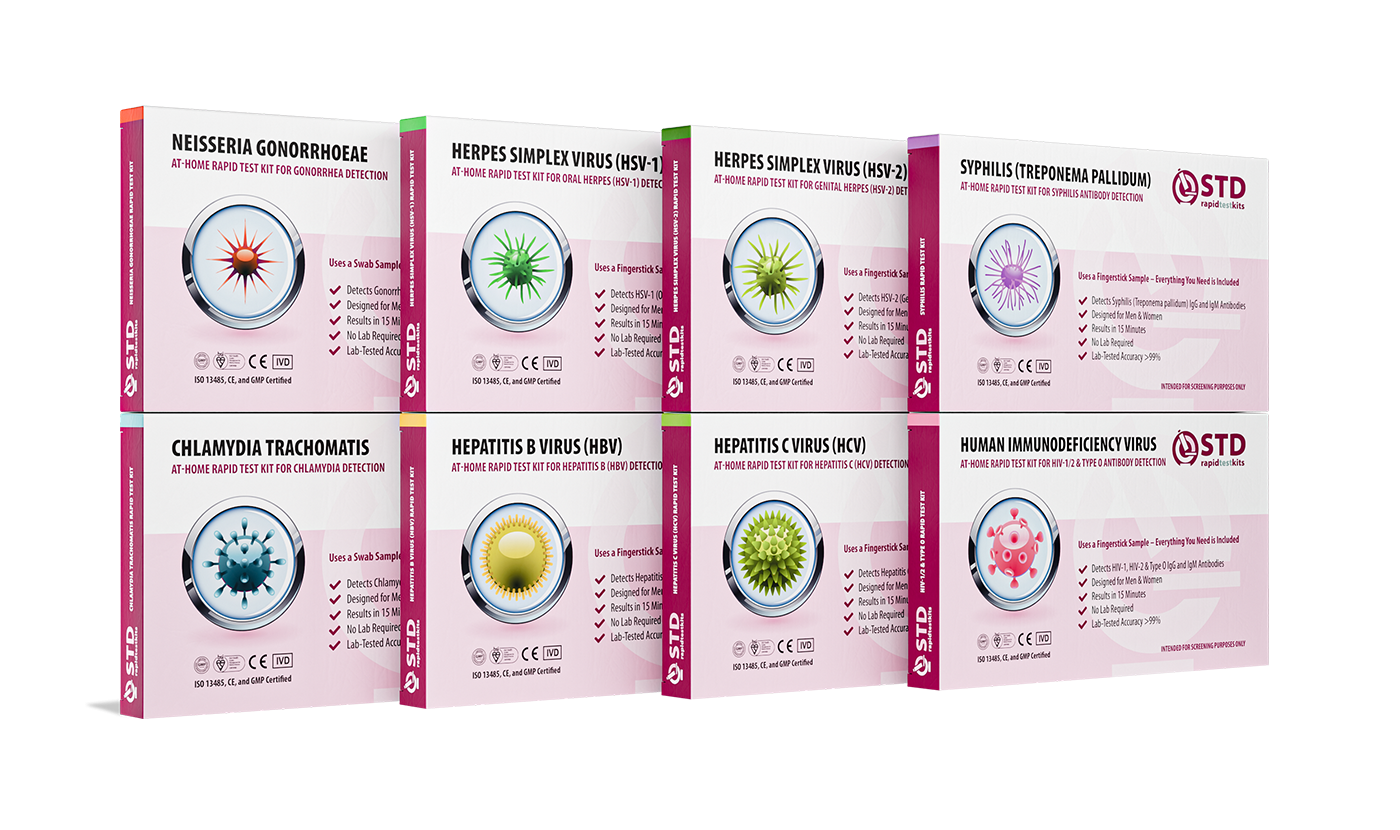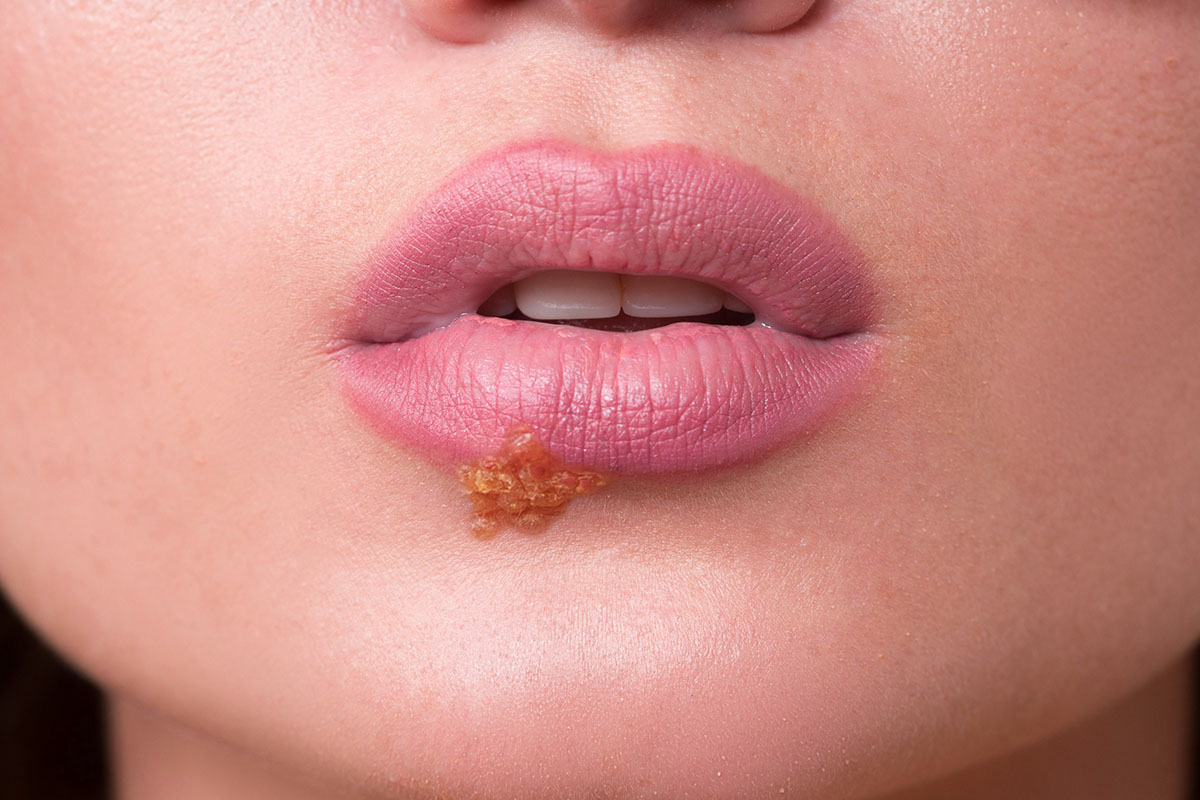Quick Answer: Yes, tingling in your lips or mouth is often the first sign of an oral herpes outbreak. This “prodrome” can start hours or days before a cold sore appears, and it’s the ideal window to start treatment and possibly stop the outbreak.
What That Tingle Really Means: The Herpes Prodrome
“Prodrome” sounds clinical, but if you’ve had oral herpes (usually HSV‑1), you’ve probably felt it. It’s the warning signal your body sends before the virus becomes visibly active.
Common prodrome sensations
- Tingling, itching, or burning around the lips or mouth
- A subtle electric or “buzzing” feeling under the skin
- Slight tightness, dryness, or warmth in a specific area
- Tenderness or swelling before a blister forms
This stage usually lasts a few hours to 2 days. For many people, it’s consistent, the same spot, same feeling, same timeline. For others, it changes each time.
And here’s the kicker: even though you don’t see a sore yet, the virus is already replicating. That means you’re already contagious. Kissing, oral sex, or even sharing lip balm can spread the virus during prodrome.

People are also reading: How STDs Reactivate: The Science of Dormancy and Symptoms
Is It Definitely Herpes? What Else Causes Mouth Tingling?
While oral herpes is the most common reason for recurring mouth tingles, it’s not the only one. If you’ve never had a cold sore before, or you’re unsure, consider other possible causes:
Other causes of tingling lips or mouth
- Vitamin B12 deficiency or low iron levels
- Burning mouth syndrome (especially in postmenopausal women)
- Allergic reaction to food, dental products, or lipstick
- Oral thrush (yeast infection in the mouth)
- Nerve issues (rare, but possible, like trigeminal neuralgia)
But here’s the difference: those usually don’t come in waves. If your tingling keeps happening in the same spot, and it’s followed by a blister, you’re probably dealing with HSV‑1.
If you’ve never been diagnosed, a quick herpes test kit can help you confirm whether you carry the virus, even between outbreaks.
What Triggers Oral Herpes to Come Back?
Herpes doesn’t just randomly show up. It hides in the nerves and reactivates when your body is stressed, run-down, or irritated. Once you’ve had a cold sore, anything that weakens your immune system can set it off again.
Common HSV‑1 triggers
- Emotional stress or anxiety
- Physical illness or fever (“fever blister” isn’t a nickname, it’s real)
- Menstruation or hormonal shifts
- Sunburn or windburn on the lips
- Dental work or trauma to the mouth
- Lack of sleep or nutritional deficiencies
If you notice a pattern, like tingling every time you skip meals, go out in the sun, or get sick, you’re not imagining it. Tracking your triggers can help you stay ahead of the virus.
How Long from Tingling to Blister?
For most people, once the tingle starts, the clock is ticking.
The usual herpes recurrence timeline
- Tingling, itching, or burning begins (prodrome)
- Redness and swelling may appear; blister starts forming
- Blisters break and ooze (most contagious stage)
- Scabbing and crusting over
- Healing continues; scab falls off
Some people skip stages or heal faster, especially if they start treatment early. That’s why acting during the prodrome is key.
Check Your STD Status in Minutes
Test at Home with RemediumOral Herpes Test Kit

 For Men & Women
For Men & Women Results in Minutes
Results in Minutes No Lab Needed
No Lab Needed Private & Discreet
Private & DiscreetOrder Now $33.99 $49.00
How to Stop a Cold Sore Before It Breaks
You feel the tingle; now what? If you act fast, you might prevent the outbreak or at least reduce its severity.
Medical options
- Valacyclovir (Valtrex): Best taken during prodrome; reduces viral load fast
- Acyclovir or Famciclovir: Effective, but often need more frequent doses
Over-the-counter and home options
- Docosanol cream (Abreva): Works best at the first tingle
- Lysine supplements: May reduce outbreak frequency (500–1000 mg daily)
- Cold compress: Can soothe irritation and slow viral activity
- Lemon balm (melissa extract): Shown in studies to reduce outbreak time
Note: Don’t apply essential oils directly to skin. They can worsen irritation. If you’re going the natural route, dilute everything and test first.
How Contagious Are You During the Tingle Stage?
This is where a lot of people get blindsided. During prodrome, before you even see a sore, you’re already contagious. The virus is replicating beneath the skin and can be present in your saliva or on the surface of your lips. That means you can transmit herpes through kissing or oral sex, even if there’s no visible blister. Viral shedding is possible without symptoms, and barrier protection like dental dams or condoms becomes crucial during this stage if any sexual activity is involved.
Rule of thumb: If you feel the tingle, pause all oral contact, even if nothing’s visible yet. It’s also worth noting that oral HSV‑1 can be passed to a partner’s genitals via oral sex. That’s how many people end up with genital HSV‑1: not through intercourse, but through a perfectly timed kiss or mouth-on encounter during prodrome.

People are also reading: How Socioeconomic Factors Influence STD Rates Worldwide
What If It Keeps Coming Back?
One cold sore every year or two might be manageable. But what if you’re getting outbreaks every month? Or tingling that never seems to lead to a blister, but keeps recurring? That’s a sign your body may not be keeping the virus fully suppressed. It’s not uncommon, and it doesn’t mean you’re doing anything wrong.
Reasons for frequent oral herpes recurrences
- High-stress lifestyle or poor sleep
- Uncontrolled triggers (sun exposure, illness, hormonal changes)
- Weakened immune system (chronic illness, medications)
- Nutritional deficiencies (zinc, lysine, B vitamins)
Talk to a provider if outbreaks are interfering with your life. Daily suppressive therapy, usually low-dose antivirals, can reduce recurrences and transmission risk by up to 70–90%.
Suppressive Therapy vs Episodic Treatment
If you only get the occasional cold sore, you might just treat outbreaks as they come. But if you’re dealing with more than 6 per year, suppressive therapy is worth considering.
Suppressive therapy
- Daily antiviral medication (like valacyclovir 500 mg)
- Lowers recurrence rate dramatically
- Reduces asymptomatic shedding (you’re less likely to infect partners)
- Often improves mental health by reducing fear of transmission
Episodic treatment
- Only taken during prodrome or outbreak
- Works best if started early (first 24 hours)
- May not stop outbreak completely, but reduces severity and duration
For many people, having medication on hand, even if they don’t take it daily, offers a sense of control. You don’t have to be powerless just because the virus lives in your body.
Check Your STD Status in Minutes
Test at Home with Remedium8-in-1 STD Test Kit

 For Men & Women
For Men & Women Results in Minutes
Results in Minutes No Lab Needed
No Lab Needed Private & Discreet
Private & DiscreetOrder Now $149.00 $392.00
For all 8 tests
Herpes Stigma Is Worse Than the Virus
Let’s be blunt: cold sores are common. Over 3.7 billion people worldwide carry HSV‑1, that’s more than half the planet. And yet, so many people feel a wave of shame when that familiar tingle hits. But that shame isn’t based in medicine, it’s cultural. And it doesn’t belong to you.
The truth is, you didn’t do anything wrong if herpes showed up. Oral herpes isn’t dirty, it’s just contagious, and deeply human. You can still kiss, love, have sex, and live fully. Being aware of your symptoms doesn’t make you paranoid, it makes you responsible.
If someone reacts negatively to your diagnosis or your cold sore, they’re reacting to stigma, not science. And if you choose to talk to a partner about it, you can do so with dignity, clarity, and strong boundaries. You deserve nothing less.
If you’ve never had a cold sore before, and this is your first time feeling a tingle, or you’re just not sure, testing can help clear things up.
Consider herpes testing if
- You’ve never had a diagnosis, but you’re feeling recurring tingles
- A partner has herpes, and you’re unsure of your status
- You’ve had unexplained lip sores in the past
- You want to distinguish between HSV‑1 and HSV‑2 (both can live in the mouth)
You can use a herpes home test kit that detects antibodies for both HSV‑1 and HSV‑2. It’s discreet, quick, and lab-level accurate. No waiting room. No awkward disclosures.
FAQs
1. Does tingling always mean a cold sore is coming?
Not always, but if you’ve had herpes before, tingling usually signals the prodrome stage. It often means a cold sore is forming unless you intervene quickly.
2. How long after tingling does a cold sore appear?
Most cold sores appear within 24 to 48 hours after tingling begins, though some take longer. Early treatment during this stage is most effective.
3. Can you spread herpes before the sore shows?
Yes. Viral shedding starts during prodrome, meaning you’re contagious even without visible sores. Kissing and oral sex should be avoided during this time.
4. Is tingling without a sore still herpes?
It might be. Some people experience prodrome sensations without a full outbreak. These episodes still involve viral activity and can be contagious.
5. Can I use cold sore cream during the tingling stage?
Yes, and that’s the best time to use it. Products like Abreva or antiviral ointments are most effective before the blister forms.
6. What helps stop a cold sore in its tracks?
Antiviral pills (valacyclovir, acyclovir), topical creams, cold compresses, and early rest. Catching the outbreak early is your best chance to shut it down.
7. What’s the difference between HSV‑1 and HSV‑2 in the mouth?
HSV‑1 is more common in the mouth, but HSV‑2 can appear there through oral-genital contact. Both cause similar symptoms but may recur differently.
8. Can I get tested while having symptoms?
Yes. You can test during an outbreak (via swab), or use a blood-based antibody test for HSV‑1/HSV‑2 detection even between episodes.
9. Should I tell my partner if I feel the tingle?
Yes. It's the ethical thing to do, you're contagious during prodrome. Let them decide if they want to pause kissing or oral sex until it's passed.
10. Can herpes be cured?
No cure exists, but it can be managed. Antiviral meds, self-awareness, and immune support can reduce outbreaks and help you live normally.
Take Charge at the First Tingle
If your mouth is tingling and your gut says something’s up, trust that. Oral herpes doesn’t define you, but it does demand attention. The earlier you act, the better your chances of avoiding a visible outbreak and protecting others. You’re not dirty. You’re informed. And that’s powerful.
Sources
1. How long do cold sores last? Duration, stages, treatments – Medical News Today
2. Recurrent Herpes Simplex Labialis: Causes of Cold Sore Recurrence – Healthline
3. Understanding Oral Herpes: Prodrome, recurrence & transmission – ASHA Sexual Health
4. Herpes Simplex Virus Fact Sheet – World Health Organization










